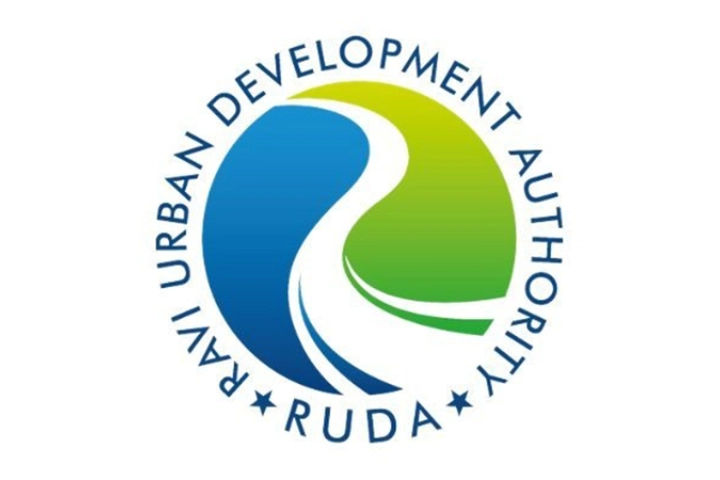Human Rights Watch has condemned Pakistan’s eviction of thousands of farmers for a plan to build the ‘world’s largest riverfront city’ near the city of Lahore.
Pakistani authorities are forcibly evicting thousands of farmers claimed to have been developed for the betterment of Pakistan.
Human Rights Watch (HRW) in its recent report criticised Pakistan for imposing laws of the ‘colonial era’, which give the administration the power to acquire land for private as well as public use.
The Human Rights Watch report stated that “the Ravi Riverfront Urban Development Project, which started in August 2020 by then-Prime Minister Imran Khan, claimed it would address Lahore’s many problems such as pollution, sewage, water, housing, and employment while reviving its “lost glory.”
As per Pakistan, PKR 5 trillion, (USD 7 billion) government project, covering more than 100,000 acres along the Ravi River in Punjab province, is among the largest infrastructure projects in Pakistan. Proposed plans would create the “world’s largest riverfront city,” with a population of 12 million”.
However, according to the statement of Patricia Gossman, associate Asia director of HRW, on Thursday, “Punjab provincial authorities have harassed and threatened area farmers to deprive them of their homes and livelihoods. The authorities need to ensure that government projects minimise displacement and loss of income, but also minimise environmental harm and flooding risks.”
To advance the Ravi River project, the government has acted on behalf of private developers to acquire the necessary property, 85 per cent of which is agricultural land occupied by nearly one million farmers, labourers, and business owners.
Affected farmers who have challenged the legality of the land seizures have faced intimidation and criminal charges brought by the governmental Ravi Urban Development Authority (RUDA), provincial authorities, and project developers, even as these legal challenges remain pending in court, the HRW report stated.
Further, several environmental groups have raised concerns that the project’s proposed changes to the flow of the Ravi River could significantly increase the risk of flooding.
Between February 1 and March 1, 2023, Human Rights Watch spoke to 14 farmers who said they have been evicted or threatened with eviction in Lahore since August 2020, as well as 8 lawyers, environmental rights activists, and journalists.
Since 2020, the authorities have criminally charged more than 100 farmers with resisting or refusing to hand over land they occupied.
“Accounts by farmers, along with corroborating photos and video, show evidence of intimidation, harassment, and the use of force to evict farmers. The exact number of people affected or forcibly evicted has been difficult to determine, including by groups representing farmers,” the HRW report stated.
Previously, in January 2022, the Lahore High Court had stated that the Ravi River project was unconstitutional. It was violating the laws related to the acquisition of land, the process for compensating those who get displaced under such projects, and environmental impact assessment.
In another incision, the Supreme Court of Pakistan partially overruled the Lahore High Court decision. The High Court, in its decision, allowed the government to continue development only on the land it had already acquired and for which it had paid compensation.
The HRW report further stated that activists and farmers still complained that, even after getting orders from the High Court and Supreme Court, Pakistani authorities have continued to capture land. In the year 2022, the farmers filed petitions to enforce the court’s decision against evicting land.
In October 2022, the Development Authority filed criminal cases against at least nine farmers, claiming that they resisted handing over lands and houses that the government had legally acquired. The farmers have challenged this, saying that they had not consented to the acquisition and had received no compensation from the government.
Further, the same HRW report quoted one farmer stating that his family had lived on the land for three generations and that the government was not only forcibly evicting them but also refusing to pay adequate compensation.
A 60-year-old farmer whose land had been seized said, “The government says they want to build a new city, but why do they need to destroy the city and lives that we already have to build a new city?”
The same report also highlighted a basic flaw of the Land Acquisition Act 1894 in Pakistan’s constitution. According to the report, the Constitution of Pakistan guarantees rights to property and land.
Article 23 provides, “every citizen shall have the right to acquire, hold and dispose of property in any part of Pakistan, subject to the Constitution and any reasonable restrictions imposed by law in the public interest.”
The Constitution also states, “No person shall be compulsorily deprived of his/her property save by law.”
It says, “No property shall be compulsorily acquired or taken possession of save for a public purpose and save by the authority of law, which provides for compensation therefore and either fixes the amount of compensation or specifies the principles on, and how, compensation is to be determined and given.”
However, despite this, the law does not state the conditions and quantum of the compensation and considerations based on the market rates for the evicted lands. Hence, raising major concerns against the eviction of land for projects in Pakistan.
Former United Nations Commission on Human Rights defined “forced evictions” as “the permanent or temporary removal against their will of individuals, families, and/or communities from the homes and/or land which they occupy, without the provision of, and access to, appropriate forms of legal or other protection.”
The commission affirmed that forced evictions constitute a “gross violation of human rights, as the HRW report stated”.




















